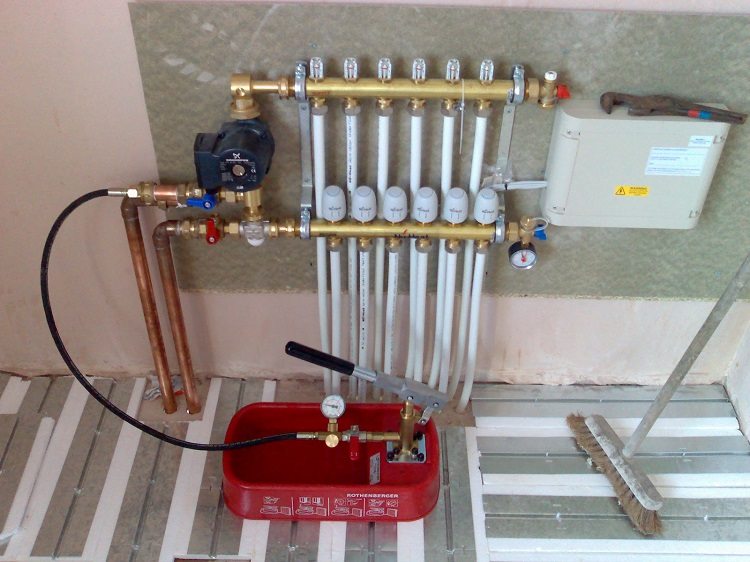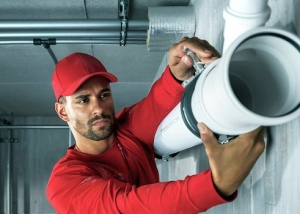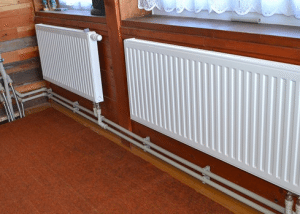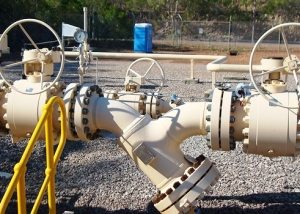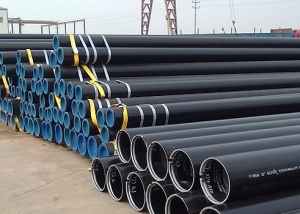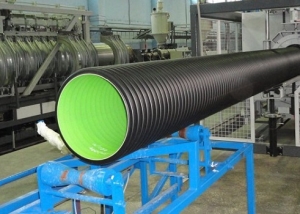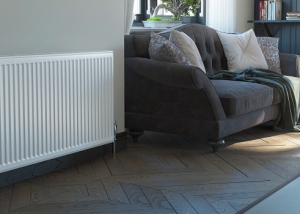Often in an apartment or in a private house, sounds emitted by heating communications are heard. This may be noise, and periodic cracking, and an even hum, and clicks, and seething. Why the heating pipes knock depends on the type of system malfunctions that appeared during operation or were allowed during its installation. The causes and sources of sounds should be eliminated, since they affect a comfortable stay in an apartment or house, and can also provoke serious pipeline accidents.
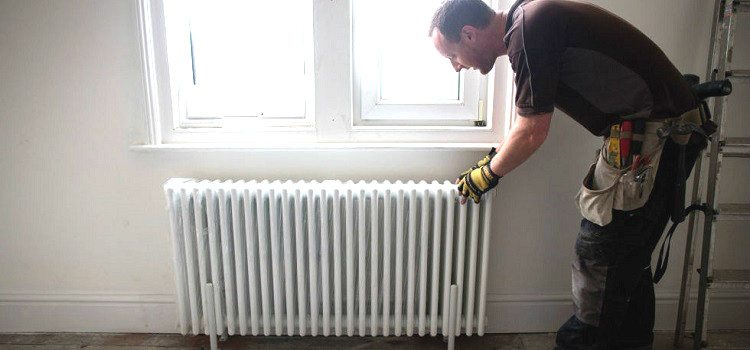
There may be a knock in heating pipes and batteries for various reasons, but any of them must be removed as soon as possible.
Content
Noise and its characteristics
The concepts of sound and noise are different. Sound is a physical phenomenon caused by the vibrational movement of particles. Sound vibrations have a certain amplitude and frequency. Noise is random sound mixing measured in decibels (dB). The set audibility threshold is 0 dB.
The sanitary standards set the values of the noise level:
- in the apartment: 30 and 40 dBA (acoustic decibel);
- at night from 23:00 to 7:00 - 45 dBA;
- in the daytime near buildings: no more than 55 dBA.
The heating pipes are noisy during the start-up of the system when a pressure drop in excess of the normalized value appears in the return and supply pipes. That is why water is making noise in the heating pipes. As the houses are connected, the clicks gradually weaken, and then completely disappear.
If after the completion of commissioning activities the sound effects in the house system continue, it is necessary to find out why the heating pipes are noisy.
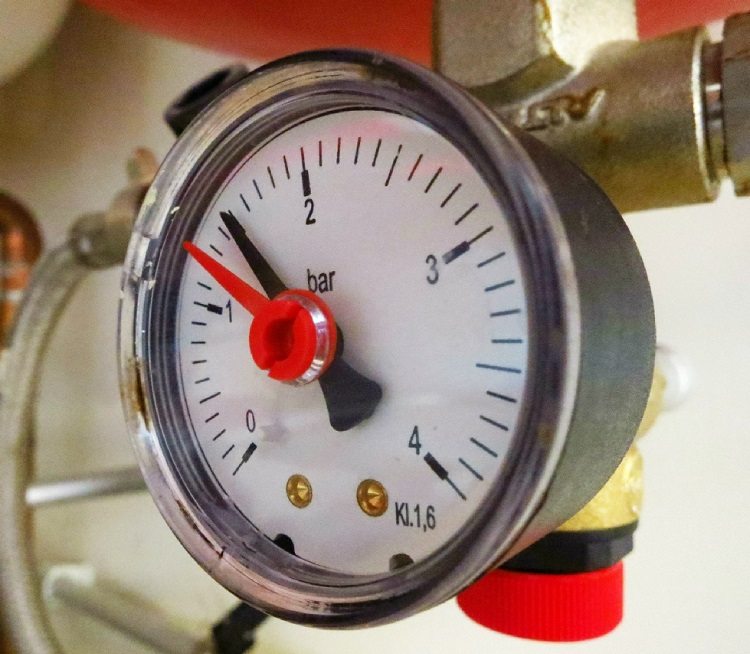
The pressure drop when starting the heating system is one of the causes of noise in the pipes, which disappears without any intervention
Reasons and sources of hum in heating pipes
Whistling, hum and noises in heating pipes in apartment buildings are quite common. Similar phenomena occur due to:
- constriction, due to which water begins to circulate incorrectly;
- leaks from communications;
- application of pipes with a smaller diameter.
When deciding why the heating pipes are humming and what to do, you must first try to find the place of the water leak. In an apartment building, neighboring apartments and rooms should be checked. If everything is in order in the apartments, and the pipes are buzzing, then with a high probability this buzz comes from the basement, in which the main communications of the building's water and heating systems are concentrated.
Note! If there really is a leak, then water flows in a small stream and a cloud of hot steam forms.
The most common places for leaks are fistulas in the wiring elements, which may be under the insulating layer, and valves. If the cause of noise in the heating pipes is a leak, then it is not always located near the source. The drone can spread over fairly large distances. All that is necessary in this case is to call the plumbing. It will fix the damage and the hum in communications should stop.
If the presence of leaks is not established, then another reason why the heating pipes are buzzing in the apartment may be their reduced permeability. The problem spot is identified by ear by examining the entire heating main. Sites that have reduced bandwidth, noise and buzz are subject to replacement.
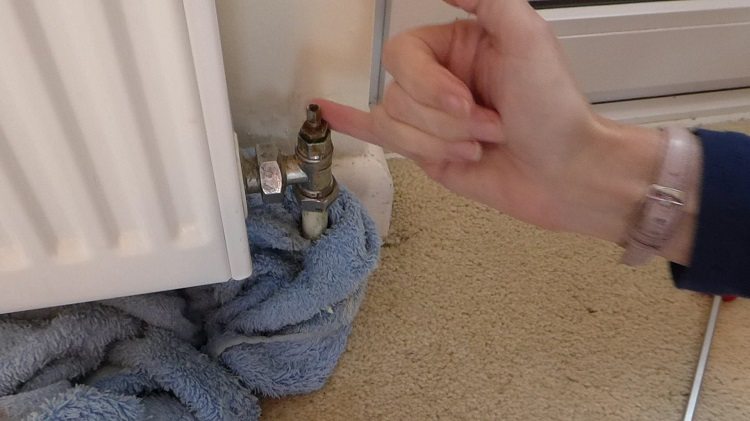
Coolant leakage through faulty valves or a damaged pipe can also cause abnormal sounds in the system
Why do heating pipes crack?
In a private house (or apartment building) you can hear a crack in the heating pipes. Such noise is often explained by the appearance of foreign solid particles in communications. Heating pipes often crack and snap for the following reasons:
- wear of some components of the system;
- valve damage;
- expansion of metal pipes.
To get rid of clicks in heating pipes in a private house, it is enough to drain part of the water contaminated with garbage. If it was not possible to remove the knocks of heating pipes in a private house by flushing, then the radiator or pipe needs to be replaced.
A house heating circuit may include screw valves. When clicking in heating pipes, the first thing to do is examine the valve valves. Improper installation can cause water to radiate. This over time will lead to a partial or full opening and a crack will appear. A possible reason why the heating pipes click is a water hammer, which is explained by periodic instantaneous shutdown of the water flow. A defective valve must be replaced in this case.
Periodic silent and knocking in heating pipes can occur due to thermal expansion. The effect occurs due to temperature differences, which leads to insignificant movement in space of the non-fixed part of the heating system. In this case, a crack, creak, or clicks may be heard. To solve the problem of eliminating knock in the heating pipes in the apartment, it is necessary to check the thermal insulation of the pipeline and examine the attachment points.
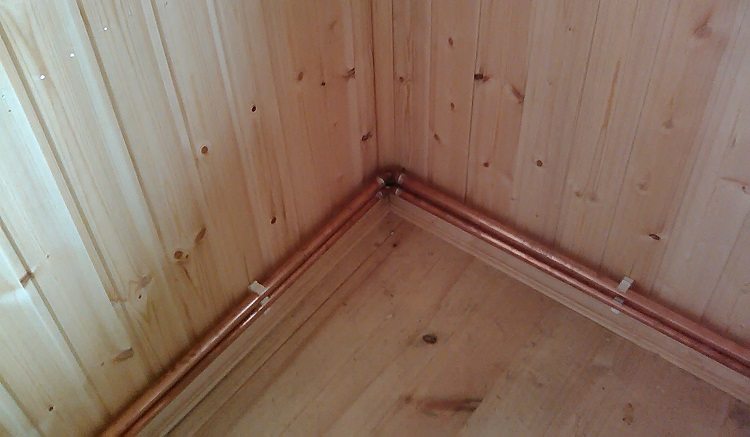
Heating pipes must be fixed to the walls at equal short distances, insufficiently secure fixation can lead to disruption of the network
Battery water is noisy and seething
In heating communications, you can sometimes hear gurgling or boiling water. This kind of noise can be explained by the presence of air jams. The fact is that the murmur of water in the heating pipes makes not only staying indoors less comfortable, but also reduces the efficiency of the system. A slight decrease in the temperature of the coolant may be observed, since the air plug prevents its free movement.
Note! To eliminate the reasons why water purses in heating pipes, special taps are cut into the system (with lower bottling) in the apartment building on the upper floors to discharge excess air.
In other cases, the heating system should be checked for counterclones. Due to the skew of part of the wiring or the radiator, the air stagnates and, as a result, the water in it makes noise. At the same time, to eliminate malfunctions, the entire system of a private house needs to be closed.
Water hammer as a cause of buzzing pipes
If unpleasant clicks occur in the heating pipes of a private house, a possible cause may be a water hammer. The physical foundations of this phenomenon are explained by the impossibility of immediately stopping the movement of water due to its inertia. The flow control of the coolant depending on the temperature in the heating network is carried out by the regulators.
Water hammer and noise of water in the heating pipes occurs at a time when the water is completely shut off. It is practically incompressible, and cannot immediately extinguish the energy of inertia. In a place where the flow stops abruptly, pressure can reach tens of atmospheres.In addition to the fact that communications are buzzing and knocking, water hammer can cause more serious problems, for example, the destruction of threaded connections, valve parts, etc.
The length of the pipe affects the strength of the water hammer. It is the strongest in the warm floor system, which has a significant duration. Water hammer is also dangerous if the thermostat is installed at the outlet of the heating circuit. If the thermostatic valve is placed at the inlet, the maximum possible pressure drop is less than 1 atm. Since according to the standards, the heating network must endure short-term bursts of pressure up to 4 atm., Then cracking and knocking is unlikely.
Other sources of noise in heating pipes
In addition to errors made during the installation of heating devices, or improper installation of the entire system, the heating pipes can make noise for such reasons:
- large pressure drops;
- coolant mismatch with technical specifications;
- the noise of a pump located in a boiler room.
At a pressure of about 150 kPa, a special washer is mounted in front of the elevator nozzle, which is located in the basement. It reduces differential pressure and equalizes pressure. To prevent the occurrence of knocking in the heating pipes of a private house, it is much better to install a differential controller, but this solution is more expensive.
If the noise comes from the basement, then the cause may be a pump located in the boiler room. This is due to resonance in the elevator.
Note! The hum and crack can be eliminated by installing a valve between the elevator and the pipe.
To avoid finding out why a heating pipe is knocking in a private house, it is necessary to exclude the use of screw valves and gate valves of small diameter even at the stage of its design. It is better to use ball valves that block the water by turning 90 degrees. They do not have constrictions under the valve, debris does not accumulate there, their work does not depend on placement relative to the heat carrier flow and installation. This will help to avoid some knocks of heating pipes in a private house.
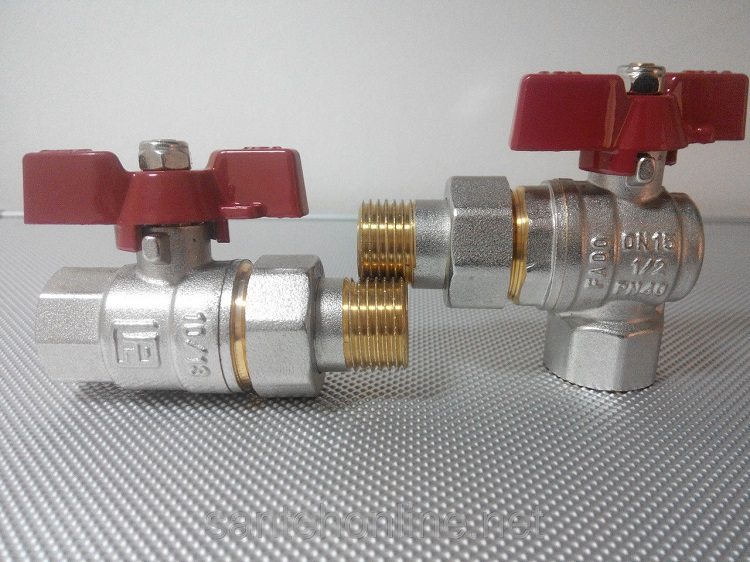
Using modern shut-off valves in the heating system, you can significantly reduce the risk of noise in the pipes
Noise in boilers and pumps
There are 4 types of fuel used for heating systems:
- gas;
- solid (wood, coal);
- electric;
- liquid.
Each type of boiler has its own characteristics and disadvantages. The use of solid fuel leads to clogging of the pipe, a decrease in traction, crackling and other abnormal sounds appear. Their elimination is made by timely cleaning of the chimney.
During the operation of diesel fuel boilers, communications are buzzing and a whistle may appear. This is due to incomplete combustion of fuel and the formation of a large amount of soot.
In case of malfunctions of valves, pumps and other equipment that is powered by an electric drive, the noise of heating pipes also occurs. What to do in this case - the answer is obvious - to repair or replace the part. When operating a poor-quality engine, not only vibrations (crackling or hum) can occur, but the parameters of the heating system, namely, its pressure, can also deteriorate.
Drone, water boiling, knocking, crackling in the communications of the heating system are quite common. How to remove noise in the heating pipes depends on the nature of the sounds and the specific reasons for their appearance.
